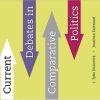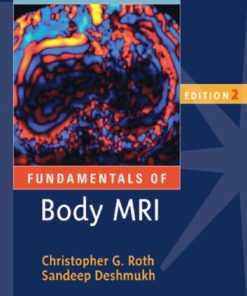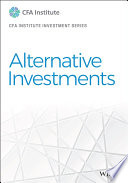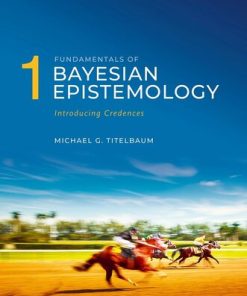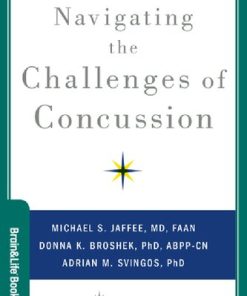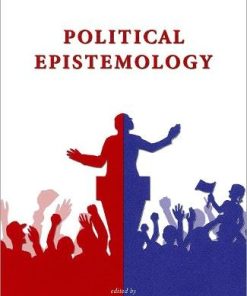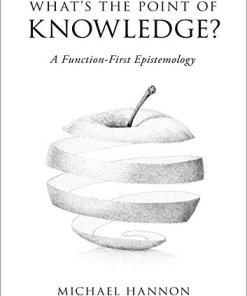Fundamentals of Bayesian Epistemology 2 Arguments Challenges Alternatives 1st edition by Michael Titelbaum 0192677853 9780192677853
$50.00 Original price was: $50.00.$25.00Current price is: $25.00.
Fundamentals of Bayesian Epistemology 2 : Arguments, Challenges, Alternatives 1st edition by Michael G. Titelbaum – Ebook PDF Instant Download/DeliveryISBN: 0192677853 9780192677853
Full download Fundamentals of Bayesian Epistemology 2 : Arguments, Challenges, Alternatives 1st edition after payment.
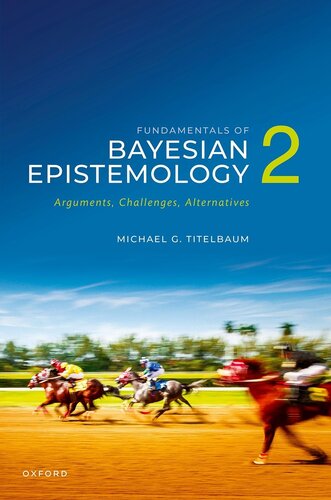
Product details:
ISBN-10 : 0192677853
ISBN-13 : 9780192677853
Author : Michael G. Titelbaum
Bayesian ideas have recently been applied across such diverse fields as philosophy, statistics, economics, psychology, artificial intelligence, and legal theory. Fundamentals of Bayesian Epistemology examines epistemologists’ use of Bayesian probability mathematics to represent degrees of belief. Michael G. Titelbaum provides an accessible introduction to the key concepts and principles of the Bayesian formalism, enabling the reader both to follow epistemological debates and to see broader implications Volume 1 begins by motivating the use of degrees of belief in epistemology. It then introduces, explains, and applies the five core Bayesian normative rules: Kolmogorov’s three probability axioms, the Ratio Formula for conditional degrees of belief, and Conditionalization for updating attitudes over time. Finally, it discusses further normative rules (such as the Principal Principle, or indifference principles) that have been proposed to supplement or replace the core five. Volume 2 gives arguments for the five core rules introduced in Volume 1, then considers challenges to Bayesian epistemology. It begins by detailing Bayesianism’s successful applications to confirmation and decision theory. Then it describes three types of arguments for Bayesian rules, based on representation theorems, Dutch Books, and accuracy measures. Finally, it takes on objections to the Bayesian approach and alternative formalisms, including the statistical approaches of frequentism and likelihoodism.
Fundamentals of Bayesian Epistemology 2 : Arguments, Challenges, Alternatives 1st Table of contents:
Part III: Applications
6. Confirmation
6.1 Formal features of the confirmation relation
6.2 Carnap’s theory of confirmation
6.3 Grue
6.4 Subjective Bayesian confirmation
6.5 Exercises
6.6 Further reading
7. Decision Theory
7.1 Calculating expectations
7.2 Expected utility theory
7.3 Causal Decision Theory
7.4 Exercises
Further reading
Part IV: Arguments for Bayesianism
8. Representation Theorems
8.1 Ramsey’s four-step process
8.2 Savage’s representation theorem
8.3 Representation theorems and probabilism
8.4 Exercises
8.5 Further reading
9. Dutch Book Arguments
9.1 Dutch Books
9.2 The Dutch Book Argument
9.3 Objections to Dutch Book Arguments
9.4 Exercises
9.5 Further reading
10. Accuracy Arguments
10.1 Accuracy as calibration
10.2 The gradational accuracy argument for probabilism
10.3 Objections to the accuracy argument for probabilism
10.4 Do we really need Finite Additivity?
10.5 An accuracy argument for Conditionalization
10.6 Exercises
10.7 Further reading
PART V: Challenges and Objections
11. Memory Loss and Self-locating Credences
11.1 Memory loss
11.2 Self-locating credences
11.3 Exercises
11.4 Further reading
12. Old Evidence and Logical Omniscience
12.1 Old evidence
12.2 Logical omniscience
12.3 Exercises
12.4 Further reading
13. The Problem of the Priors and Alternatives to Bayesianism
13.1 The Problem of the Priors
13.2 Frequentism
13.3 Likelihoodism
13.4 Exercises
13.5 Further reading
14. Comparative Confidence, Ranged Credences, and Dempster-Shafer Theory
14.1 Comparative confidence
14.2 Ranged credences
14.3 Dempster-Shafer theory
14.4 Exercises
14.5 Further reading
People also search for Fundamentals of Bayesian Epistemology 2 : Arguments, Challenges, Alternatives 1st:
fundamental philosophy books
fundamentals of theory
fundamental beliefs philosophy examples
fundamentals of bayesian epistemology 1 introducing credences
fundamentals of nonparametric bayesian inference
Tags:
Fundamentals,Bayesian Epistemology,Arguments,Challenges,Alternatives,Michael Titelbaum
You may also like…
Business & Economics - Personal Finance
Medicine - Anatomy and physiology
Mathematics - Mathematical Theory
Medicine - Anatomy and physiology
Medicine - Neurology
Navigating the Challenges of Concussion Michael 0190630132 9780190630133
Politics & Philosophy
Politics & Philosophy
What’s the Point of Knowledge?: A Function-First Epistemology 1st Edition Michael Hannon


